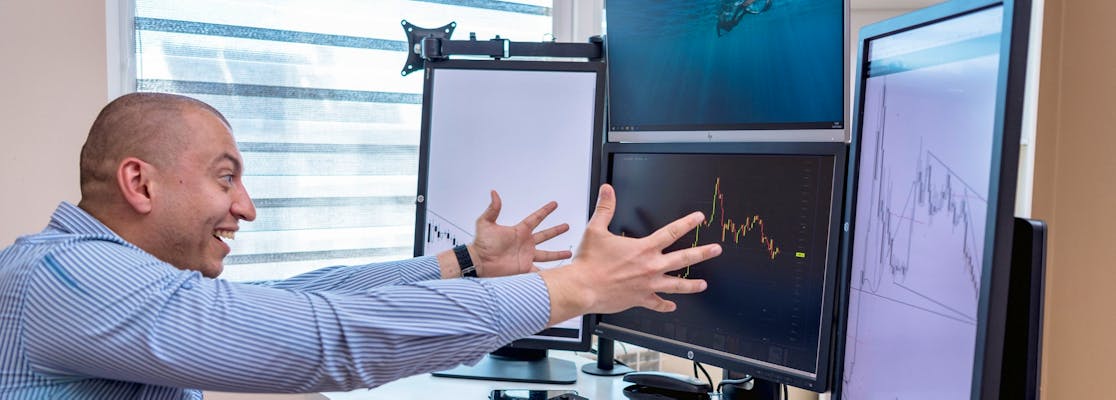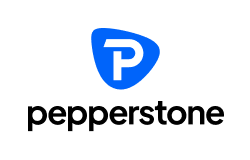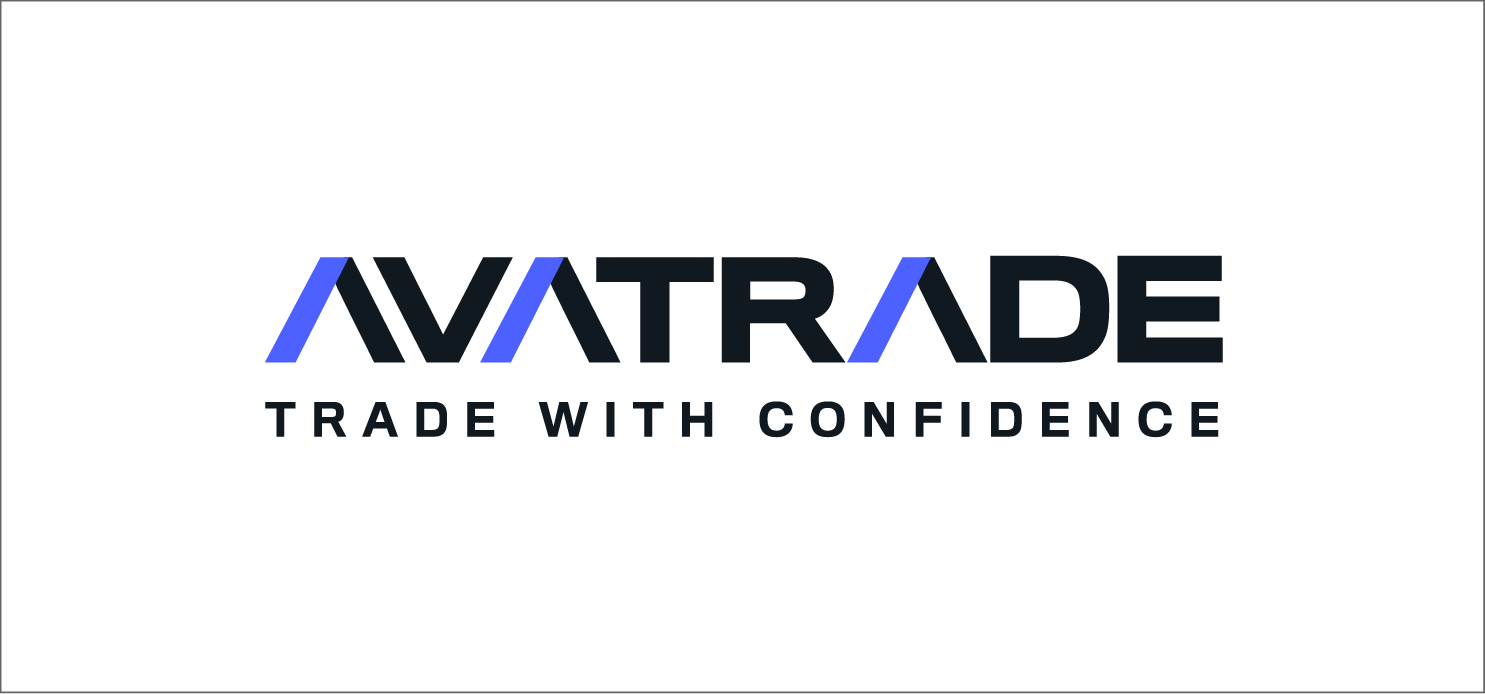Best 7 Trading Platforms in Brazil (2025 Review)
All products and services featured are independently selected by WikiJob. When you register or purchase through links on this page, we may earn a commission.
- A list of the Top Trading Platforms in Brazil for January 2025:
- Comparison Chart of the Best Trading Platforms in Brazil for January 2025
- Description of the Best Trading Platforms in Brazil for January 2025
- What Is a Trading Platform?
- Key Points to Remember When Choosing a Platform
empty
empty
empty
empty
empty
empty
empty
empty
empty
empty
- Frequently Asked Questions
- Final thoughts
A list of the Top Trading Platforms in Brazil for January 2025:
Comparison Chart of the Best Trading Platforms in Brazil for January 2025
Regulation FCA, DFSA, CySEC, BaFIN, ASIC, CMA, SCB | Markets Forex, Indices, Commodities, Cryptocurrencies, ETFs, Shares | Instruments CFDs | |||
Regulation FCA, CySEC | Markets Forex, Indices, Commodities, Cryptos | Instruments CFDs | |||
Regulation ASIC, FSCA, FSA | Markets Forex, Stocks, Cryptos, Commodities, Indices | Instruments CFDs | |||
Regulation FCA, ASIC, CFTC | Markets Forex, Stocks, Cryptos, Commodities, Indices | Instruments CFDs, Real Stocks | |||
Platform Olymp Trade | Regulation FinaCom | Markets Forex, Stocks, Cryptos, Commodities, Indices | Instruments Fixed Time Trades | ||
Platform Saxo | Regulation FSA, FCA, ASIC | Markets Forex, Stocks, Cryptos, Commodities, Indices | Instruments CFDs, Real Stocks | ||
Platform Interactive Brokers | Regulation SEC, FINRA | Markets Forex, Stocks, Cryptos, Commodities, Indices | Instruments CFDs, Real Stocks |
1. Pepperstone
Pros
- Extensively regulated
- No minimum deposit
- Low fees and mostly free withdrawals
- Good customer service
Cons
- No investor protection for clients outside UK, EU and EEA
- Withdrawal fee for international bank wires
- CFDs only
Pepperstone is recognized as one of the best trading platforms for traders in Brazil, offering a wide array of features that cater to both novice and experienced traders.
Pepperstone provides access to over 1,200 tradable instruments, including forex, commodities, indices, shares, ETFs, and cryptocurrencies. This extensive selection allows traders to diversify their portfolios effectively.
Traders can choose from several advanced trading platforms such as MetaTrader 4 (MT4), MetaTrader 5 (MT5), cTrader, Pepperstone's platform and TradingView. These platforms are renowned for their powerful charting tools, algorithmic trading capabilities, and user-friendly interfaces.
Pepperstone offers highly competitive spreads and low commissions, particularly with their Razor account. Spreads can start as low as 0.0 pips for major currency pairs like EUR/USD, with a commission of $3.50 per lot per side, making it an attractive option for cost-conscious traders.
Pepperstone offers leverage up to 1:500 for forex trading for Pro accounts, allowing traders to maximize their market exposure with a smaller initial investment. However, it's important to use leverage wisely as it can significantly amplify both gains and losses.
Pepperstone is regulated by top-tier financial authorities such as the UK Financial Conduct Authority (FCA) and the Australian Securities and Investments Commission (ASIC). This ensures a secure and transparent trading environment, offering additional investor protection measures.
The platform is known for its fast execution speeds, averaging around 30 milliseconds, which is crucial for traders who need quick order processing to take advantage of market movements.
Pepperstone provides excellent customer support with 24/5 availability via live chat, email, and phone. Traders also benefit from dedicated account managers and extensive educational resources including webinars, tutorials, and market analysis tools.
2. XTB
Pros
- Regulated by the FCA
- Low forex fees
- Fast withdrawal and deposit with no fee
- Live chat customer service
Cons
- No US clients
- Limited product portfolio
- High fees for stock CFDs
Regulation: Belize, Cyprus, Poland, Spain, UK
Minimum deposit: $0
Demo account: Yes
Tradable assets: CFD, Crypto, ETF, Forex, Stocks
Trading platform available in Portuguese: Yes
XTB was founded in 2002 with headquarters in London and Warsaw.
While it is not regulated by as many top-tier jurisdictions as its competitors, it is still regulated by the FCA and listed on the Warsaw Stock Exchange.
This means that it is a reliable broker because they are transparent about their financials and have survived a recession.
XTB has low forex fees and free withdrawals for amounts over $100.
On the negative side, there is a $20 fee for withdrawals under $100, an inactivity fee of €10 per month and high stock CFD trading fees.
Trading platforms are available across the web, desktop and mobile app.
You also have the choice of using XTB's trading platform or MetaTrader 4.
They offer good research tools and an excellent catalog of educational material.
Customer service channels include phone and live chat, and their response time is speedy.
The downsides are that there is limited fundamental data and tradable assets.
CFDs are complex instruments and come with a high risk of losing money rapidly due to leverage. 76% of retail investor accounts lose money when trading CFDs with this provider. You should consider whether you understand how CFDs work and whether you can afford to take the high risk of losing your money.
3. AvaTrade
Pros
- Worldwide regulated
- Multiple platforms – MT4, MT5, etc.
- Negative balance protection
- 20% welcome bonus
- Educational content
- Wide rage of payments methods
- Fixed spreads
Cons
- You can’t buy stocks
- Quarterly and annual inactivity fees
- Custumer support is not available 24/7
- No bonus for EU based clients
- No US clients accepted
- Imitated crypto assets
AvaTrade is a CFD Regulated broker with +1,000 financial instruments and multiple trading platforms. It has been operating since 2006.
It offers a 20% welcome bonus up to $10,000, according to regulation and a free 21-day demo account with $100,000.
Instruments include:
- Metals
- Commodities
- Stocks
- FX Options
- Oil
- ETFs
- Options
- Crypto currencies
- CFDs
- Indexes
- Shares
- Spread betting
- Indices
- Forex
- Bonds
AVATrade EU Ltd is regulated by the Central Bank of Ireland. (No.C53877) Ava Trade Markets Ltd. is regulated by the B.V.I Financial Services Commission. It is also highly regulated in Australia, South Africa, Japan, Middle East, Cyprus and Israel
You can not trade with AvaTrade in the US, North Korea, New Zealand, Iran or Belgium.
Mínimum deposit of $100, no withdraw limit and no fees.
4. IG
Pros
- Highly regulated
- MetaTrader 4 (MT4)
- Over 10,000 instruments
- Available in the UK and US
- 24/7 customer support
Cons
- High fees
- No deposit compensation scheme for US accounts
- No copy trading
- Inactivity fees
IG invented spread betting in 1974 and today is the world’s leading online trading provider with more traders trusting them with their money than anyone else
IG is authorised and regulated by the FCA and provides traders access to over 18,000 markets. IG offers more 24-hour indices than any other provider, and extended hours on over 70 key US stocks
For those who prefer to own the underlying asset, IG offers access to over 13,000 global shares and ETFs, or a wealth portfolio managed by one of their experts.
Benefits:
- Advanced platform and charting – L2 dealer, ProRealTime and MT4
- Demo account
- Extended trading hours
- Extensive range of products
- Daily expert analysis & educational resources
- Round-the-clock customer service
- Negative balance protection for retail clients
Based on revenue (published financial statements, October 2022). 24/7 excludes the hours from 10 pm Friday to 8 am Saturday (UK time), and 20 minutes just before the weekday market opens on Sunday night.
5. Olymp Trade
Pros
- Low minimum deposit
- Free deposits and withdrawals
- Good educational resources and trading tools
- 24/7 customer service
- User-friendly interface
- Demo account
Cons
- Inactivity fee
- No US clients
- Limited regulation
Founded in 2014, Olymp Trade is a relative newcomer as a trading platform but has more than 25 million users worldwide.
Traders can buy and sell stocks, commodities, forex, cryptocurrencies and ETFs with a minimum deposit of $10.
Based in St. Vincent and the Grenadines, Olymp Trade is regulated by the IFC.
All deposits and withdrawals are free, whether you use bank transfer, cards or e-wallets, but there is an inactivity fee after 180 days of $10 (or equivalent) per month.
Commission is about 8% of the trade on Olymp Trade, and the spreads are about average on currency pairs. There are no fees for deposits or withdrawals, with a minimum withdrawal amount of $10.
The trading platform is available on web, mobile and desktop and is straightforward to use with a seamless user experience. The interface is customisable, and you can use various indicators and analysis tools while making trades on options on forex.
The mobile app is native for both iOS and Android and is designed to have the full functionality of the web and desktop platform, with notifications and alerts.
If you want to use Olymp Trade for buying Bitcoin, it is worth noting that you can only trade cryptocurrency CFDs rather than buying and owning the altcoins.
Traders on the platform are designated different statuses, depending on the amount of deposit.
- Starter is up to $499 deposit, which offers basic functionality.
- For those that deposit $500 to $1,999, the Advanced status offers more open positions, faster withdrawal requests, monthly consultations with professionals, built-in trading strategies and private webinars. You can get a 10% discount on Forex fees too.
Advanced status comes from depositing more than $2,000, and includes risk-free trades, individual training and exclusive daily investment ideas as well as everything else that is available in the lower status groups.
There are lots of educational resources available on Olymp Trade, including a Learn How to Trade in 30 Minutes course and other articles, tutorials and videos all listed by theme and category.
Research is in-house and includes forecasts, technical analytics and a blog with lots of useful information, with analysis like charting, an economic calendar and fundamental data.
Customer service is available in multiple languages and can be accessed 24/7 via phone, email or live chat.
6. Saxo
Pros
- Heavily regulated
- Good product portfolio
- Low forex fees
- No withdrawal fee
Cons
- Does not accept US clients
- High fees for options, futures and bonds
Regulation: Australia, Denmark, France, Japan, Singapore, South Africa, Switzerland
Demo account: Yes
Tradable assets: Bond, CFD, Crypto, ETF, Forex, Fund, Futures, Options, SaxoSelect, Stocks
Trading platform available in Portuguese: Yes
Saxo is a Danish investment bank founded in 1992. It has survived a recession and is regulated by several top-tier jurisdictions, making it reliable.
They offer a very well-designed web, desktop, and mobile app trading platform and a wide-ranging product portfolio, meeting the needs of all traders.
The research tools are some of the best available, and the Saxo proprietary research team is always offering new trading tips and ideas.
Forex and fund fees are competitively low, and there are no withdrawal fees.
However, there is an inactivity fee of $150, and their bond, options and futures fees are high.
The only customer service channel is phone support, available during business hours.
While Saxo excels at research, its educational resources are limited to video tutorials and webinars.
7. Interactive Brokers
Pros
- Regulated
- Wide range of offerings
- Low commission
- Socially responsible
- 24/5 customer support across multiple channels
Cons
- No additional platforms
- Inactivity fees
Regulation: Australia, Canada, Hong Kong, Hungary, India, Ireland, Japan, Luxemburg, UK, US
Minimum deposit: $0
Demo account: Yes
Tradable assets: Bond, CFD, Crypto, ETF, Forex, Fund, Futures, Options, Stocks, Structured Products, Warrants
Trading platform available in Portuguese: No
Interactive Brokers has some of the lowest trading fees available on the market.
This broker is designed for more advanced traders, however. The account opening process is complex, and the platforms are not as user-friendly as others.
Additionally, inactivity fees are high and vary depending on your account balance and age.
They have incredible research and data tools with desirable third-party integrations. Educational materials are extensive and include trading glossaries, online courses, tutorials and webinars.
Interactive Brokers offers phone and live chat support; however, it can sometimes be slow.

What Is a Trading Platform?
Trading platforms are software used for managing all aspects of a trade through a financial mediator like an online broker.
They are offered to all traders either for free or at a competitive rate in exchange for maintaining an active account.
The trading and investing industry is competitive; therefore, trading platforms come with a host of features, including:
- Real-time quotes
- Charting tools
- Newsfeeds
- Advanced research tools
- Education resources
Some trading platforms offer a wide range of investment options. Others are more market-specific, such as forex or commodities.
Trading platforms also fall into one of two categories: commercial or prop.
Prop platforms are fully customized and developed by large brokerages to suit their specific needs and trading styles.
Commercial platforms are designed for day traders and retail investors. They are easy to use and come with an assortment of appealing features.
The 2020 COVID-19 pandemic saw a sharp rise in the trading industry. Therefore, a whole host of trading platforms are now available to the public.
Regardless of your trading level, choosing a broker that suits your needs is not always easy.
This article is designed to inform you of the important factors to consider when choosing a trading platform in Brazil and five of the top-rated commercial platforms available today.
Key Points to Remember When Choosing a Platform
Educational Resources
This factor is crucial for beginner traders as trading tools can be complex. Platforms like IG and AvaTrade are known for their educational materials.
You might be tempted to overlook this area, but having a good knowledge base and understanding the tools and data will help you maximize your investments.
Demo Account
Demo accounts fall under education; however, it is a feature that you should look for when finding the best trading platform.
These accounts allow you to test your skills, knowledge and strategy with real-time trades without losing any of your money.
You can stick with your demo account until you have perfected your trading style and are ready to live trade.
Customer Service
The customer service functions vary. Some offer 24/7 phone and live chat, others email only.
If you struggle with technology, you should consider the level of support that is available.
Check review sites to see how other traders rate a platform's customer service. They may say they offer around-the-clock live chat support, but how often are they actually online and how quickly do they respond?
You should also consider your location concerning the trading platform. Being based in Brazil, your time zone is better suited to US working hours.
Ease of Use
Looking at graphs, chart patterns, and data all day can be challenging, especially if it's on a chaotic screen.
Take advantage of demo accounts to see which trading platforms are easy to use.
The best platforms will allow you to customize your screen and menus so you can see the information you want with ease.
Security
When deciding the best international trading platforms, you should look for who it is regulated by.
The most secure online brokers are those regulated by top-tier jurisdictions such as the US and UK.
However, as the Brazilian Stock Exchange is one of the strongest, you should also check if the platform is regulated by the Comissão de Valores Mobiliários (CVM).
Investment Types
Some trading platforms choose to focus on just one type of asset, while others offer all types.
The most common are:
- Options
- Futures
- Stocks
- Indices
- Cryptocurrency
- Forex
- Commodities
- EFTs
- CFDs
No rule says you must only have one broker, so you can choose ones with specific assets. But if you are planning on having a diverse portfolio, consider a platform with multiple asset types.
Access to Real-Time Information
The data you have access to determines how informed your trades are.
Look for a trading platform that is rich in advanced research tools with real-time updates.
Fundamental data is one of the most valuable research tools; however, not all brokers offer it.
Fees
Every trading platform comes at a cost, and some are more suited to your budget than others.
When assessing your broker, make a note of the following:
- Minimum deposit
- Transfer and withdrawal fees
- Trade fees
- Commission
- Additional or hidden fees
- Inactivity fees
Trading Style
How you plan on trading may influence your final choice.
If you plan on trading full-time, you want a broker that offers a high-quality web, desktop and mobile app trading platform.
For more casual traders, you might opt for a broker that has a comprehensive web and mobile trading platform.
If you are someone always on the go, you should look for platforms that enable you to set up alerts, notifications, or automated trades.
Deciding What Works for You
Every trader has different levels of understanding and different financial goals.
Do not use a trading platform just because someone you know does.
Assess the features, use the demo accounts and pick one that fits you and your needs.
Frequently Asked Questions
A lot of trading platforms accept investors from Brazil. The best binary option for Brazilian traders is arguably IQ Option.
IQ is a trading platform that has a list of benefits for both beginners and experts. It has a low minimum deposit of just $10 and you can use the platform either through an app or through a computer.
It has also been regulated by the FCA, the MiFID and the CySEC, making it a secure choice.
Another great choice is Expertoption. Options trading is beginner-friendly, but Expertoption has a great customer service network, making it even easier for users to trade. The minimum deposit for Expertoption is also $10 and it has extensive asset coverage.
Binary options trading is very popular in Brazil and there are no prohibitions in place to stop you from trading in binary options.
Binary options trading is regulated by the CMV which offers licenses for people who want to start trading.
Most Brazilian binary options traders live in other countries but have Brazilian citizenship. If you are trading in binary options in Brazil when you live elsewhere, ensure you use regulated offshore brokers for your financial safety.
There are a few ways in which you can trade stocks in Brazil. First, you can use an online broker to trade any Brazilian stocks. You must check with the broker if they sell and buy Brazilian stocks.
Second, you can invest in a broad market index. The broad market index is a tool used to measure the performance of a large group of stocks that are representative of the broader market.
This is a great option for anyone unfamiliar with the specific stocks in a country or area.
Third, if you live in Brazil and are a registered stock broker, you can trade stocks right from the São Paulo Stock Exchange which is one of the largest stock markets in the Americas.
Saxobank is considered to be one of the best trading platforms for forex trading.
Although there is a high deposit of $10,000, you can run demo accounts to measure the feasibility of your trading strategy.
Saxobank also allows you to trade in bonds, CFDs, Crypto and options, alongside forex.
If you are looking for a cheaper option, then XTB is also a great platform for forex trading. To set up an account with XTB you do need any money for a deposit, and you can trade on the web, desktop and mobile app.
For forex trading with XTB, there are low fees in place, and you can withdraw for free on anything worth over $100.
The Brazil BOVESPA is the Brazilian stock market. Interactive Brokers is a stock market network that accepts clients in over 220 countries and territories.
Although you can access Interactive Brokers in Brazil, the Brazilian BOVESPA is not one of the listed markets.
There are a total of 135 markets listed on Interactive Brokers, and the closest market to Brazil is the Mexican stock exchange. Most of the markets listed on Interactive Brokers are US-based.
Forex is one of the most popular forms of trading and it is no different in the Brazilian market. Several brokers allow you to trade forex in Brazil.
XTB is a great option for forex trading because it has a $0 deposit, meaning you can set up an account with no funds before trading.
Saxobank also receives great reviews for trading in forex, but it does require a steep deposit to set up an account.
IG is considered to be the best overall broker when it comes to forex trading in Brazil.
The platform offers options on over 19,000 tradable instruments, and it is also a trusted trader by various financial authorities.
You can trade directly from the Brazil 60 chart, which is the data taken directly from the Brazilian Bovespa.
In addition to these benefits, IG allows you to open demo accounts so you can develop your trading strategies without heavy financial risk.
Final thoughts
Deciding on a trading platform is just as difficult as deciding on a trade.
There are many factors to consider, and all platforms come with advantages and disadvantages.
AvaTrade is one of the best for platform technology.
Some brokers offer the best research and educational tools but lack tradable assets.
Take advantage of the demo accounts and sample all the platforms that appeal to you.
Read as many customer reviews and comparison sites as you can to help you make an informed choice.
Trading always comes with a risk; however, if you apply your risk-management strategies and assess all the data, your trades and investments should be rewarding.
WikiJob does not provide tax, investment or financial services and advice. The information is being presented without consideration of the investment objectives, risk tolerance, or financial circumstances of any specific investor and might not be suitable for all investors. Past performance is not indicative of future results. Investing involves risk including the possible loss of principal.










